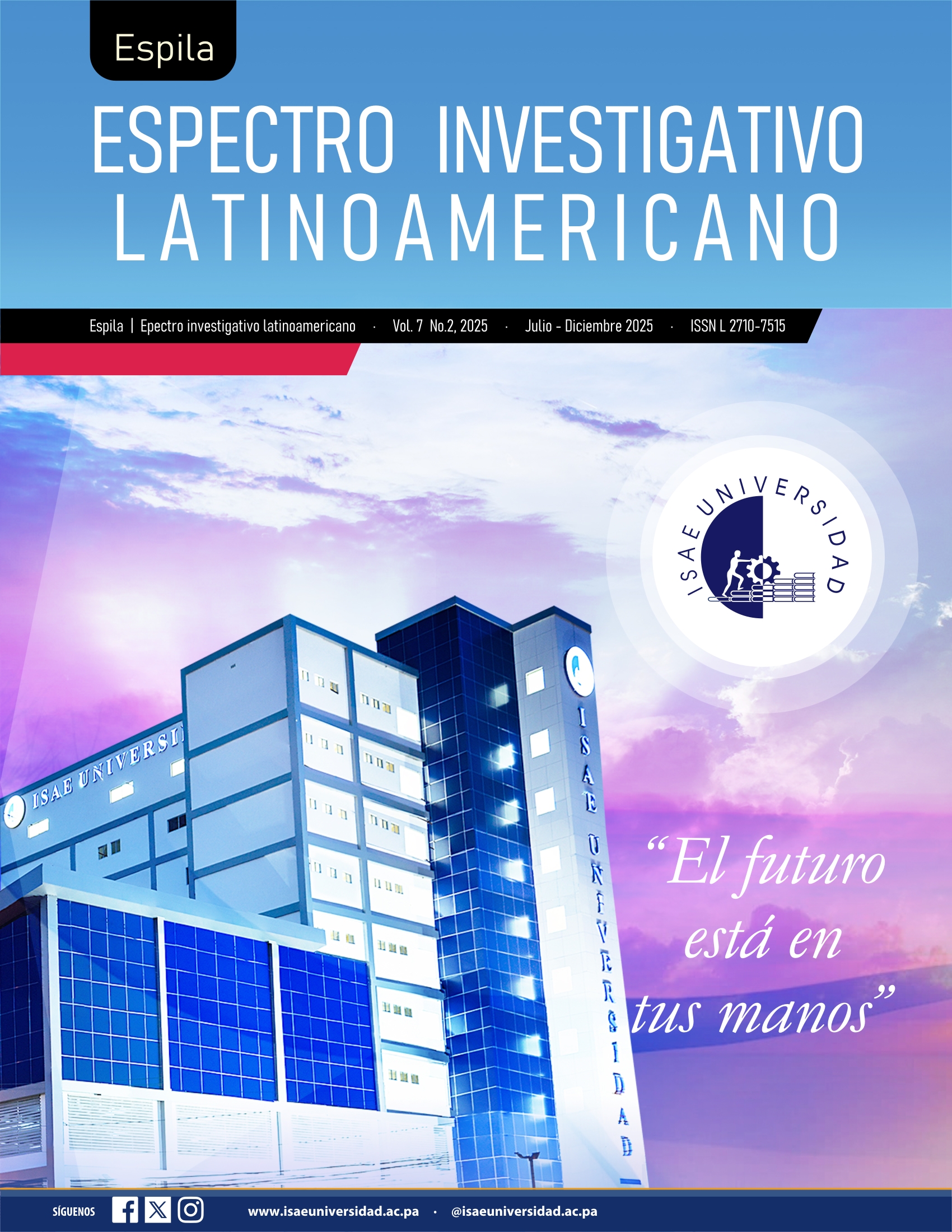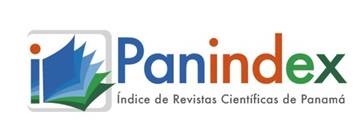Job motivation in the face of the implementation of teleworking among UDELAS administrative staff
DOI:
https://doi.org/10.61454/5dwazk51Keywords:
Job motivation, telework, administrative staff, organizational culture, UDELASAbstract
This study aims to analyze the influence of job motivation on the implementation of telework in the administrative staff of UDELAS University, Panama campus. A descriptive-correlational mixed-method design was used, applying surveys to a population of 45 administrative employees. The results show that factors such as autonomy, effective communication, technological tools and constant feedback significantly influence the intrinsic and extrinsic motivation of workers. Although telecommuting has allowed operational continuity, critical areas for improvement related to training, organizational culture and internal coordination are identified. It is recommended to implement professional development programs and institutional communication strategies to strengthen motivation and productivity in virtual environments.
Downloads
References
Aguilar Chávez, P. V., Carranza Zamora, L. A., Fernández Hurtado, J. E., Medina Correa, R. M., & Romero Sánchez, R. V. (2022). Indicadores para medir la productividad del teletrabajo en las empresas del sector privado. YACHAQ, 5(1), 69–78. https://doi.org/10.46363/yachaq.v5i1.215 DOI: https://doi.org/10.46363/yachaq.v5i1.215
Atoche, I. (2021). Influencia entre el trabajo remoto y la calidad de vida laboral de los trabajadores del departamento de Gestión del Talento Humano de la Empresa Panameña de Alimentos – Café Duran, 2020. Universidad de Panamá.
Bauzas, A., & Reyes, G. (2019). Gestión del Talento Humano. IURE.
Buitrago Botero, D. M. (2020). Teletrabajo: una oportunidad en tiempos de crisis. Revista CES Derecho, 11(1), 1–2. Recuperado a partir de https://revistas.ces.edu.co/index.php/derecho/article/view/5620
Buomprisco, G., et al. (2021). The telework performance dilemma: Exploring the role of trust, social isolation and fatigue. Applied Psychology: An International Review, 70(1), 208–230. https://doi.org/10.1177/00910260211073154researchgate.net+1journals.sagepub.com+1
CEECAM. (2020). II Encuesta, impacto del Coronavirus en Panamá, del Centro de Estudios Económicos y la Cámara de Comercio, Industria y Agricultura de Panamá, Panacámara. https://www.panacamara.com/resultados-finales-de-ii-encuesta-empresarial-impacto-del-coronavirus-en-panama/
Chiavenato, I. (2017). Comportamiento organizacional: la dinámica del éxito en las organizaciones (3.a ed.). McGraw-Hill Interamericana.
Cortés, A., & Villamizar, A. (2023). Psycho social risk factors associated with part time and full time teleworking: A systematic review. Frontiers in Psychology, 14, Article 1065593. https://doi.org/10.3389/fpsyg.2023.1065593frontiersin.org
Guayasamín Arroba, S. E. (2021). El teletrabajo y la incidencia en la productividad laboral en la Cooperativa de Ahorro y Crédito Oscus Ltda [Tesis de maestría, Universidad Técnica de Ambato]. Repositorio UTA. https://repositorio.uta.edu.ec/items/a65e57a0-043e-4e29-9681-81a2ff8bdace
Hernández Sampieri, R., Mendoza Torres, C. P., & Baptista Lucio, L. P. (2021). Metodología de la investigación: Las rutas cuantitativa, cualitativa y mixta (7.ª ed.). McGraw-Hill. https://www.mheducation.com.mx/metodologia-de-la-investigacion-las-rutas-cuantitativa-cualitativa-y-mixta-0071139908.html
Martínez Miguélez, M. (2011). La nueva ciencia: El paradigma emergente y la investigación científica. Fondo Editorial Universidad Bicentenaria de Aragua. https://biblioteca.ucla.edu.ve/cgi-bin/koha/opac-detail.pl?biblionumber=31549
Ramírez, J. M., & Perdomo, M. M. (2020). Ventajas y desventajas de la implementación del teletrabajo. Competitividad e innovación, 1(1), 96, Artículo 12. https://pure.urosario.edu.co/es/publications/ventajas-y-desventajas-de-la-implementaci%C3%B3n-del-teletrabajo-revis
Sánchez, G., & Montenegro, A. (2019). Teletrabajo: una propuesta de innovación en productividad empresarial. 593 Digital Publisher CEIT, 4(5-1), 91–107. DOI: https://doi.org/10.33386/593dp.2019.5-1.133 DOI: https://doi.org/10.33386/593dp.2019.5-1.133
Van den Broeck, A. N., Howard, J. L., Van Vaerenbergh, Y., Leroy, H., & Gagné, M. (2021). Beyon dintrinsic and extrinsic motivation: A meta analysis on self determination theory’s multidimensional conceptualization of work motivation. Frontiers in Psychology, 12, Article 852758. https://doi.org/10.3389/fpsyg.2021.852758osf.io+3selfdeterminationtheory.org+3lirias.kuleuven.be+3 DOI: https://doi.org/10.1177/20413866211006173
Escudero Novoa, M. L., & Gonzales Salavarría, A. A. (2024). El teletrabajo y su influencia en el desempeño laboral en los colaboradores peruanos de una empresa chilena, Lima, 2023. Apuntes De Ciencia & Sociedad, 12(1), 36-47. https://doi.org/10.18259/acs.2024004 DOI: https://doi.org/10.18259/acs.2024004
Cortés, A., & Villamizar, A. (2023). Psychosocial risk factors associated with part time and full time teleworking: A systematic review. Frontiers in Psychology, 14, Article 1065593. https://doi.org/10.3389/fpsyg.2023.1065593 DOI: https://doi.org/10.3389/fpsyg.2023.1065593
Gibbs, J. L., et al. (2021). A supportive communication climate fosters satisfaction and commitment. Estudios recientes en equipos virtuales. (Artículo en Research Gate) en.wikipedia.org+1en.wikipedia.org+1
Mele, V., Belardinelli, P., &Bellé, N. (2023). Telework in public organizations: A systematic review and research agenda. Public Administration Review. https://doi.org/10.1111/puar.13734onlinelibrary.wiley.com+1researchgate.net+1 DOI: https://doi.org/10.1111/puar.13734
de Souza Santos, R. E., & Ralph, P. (2022). Coordination in remote-first and hybrid software teams: A grounded theory. (Teoría de coordinación) arxiv.org DOI: https://doi.org/10.1145/3510003.3510105
Downloads
Published
Issue
Section
License
Copyright (c) 2025 Espectro Investigativo Latinoamericano

This work is licensed under a Creative Commons Attribution-NonCommercial-ShareAlike 4.0 International License.












